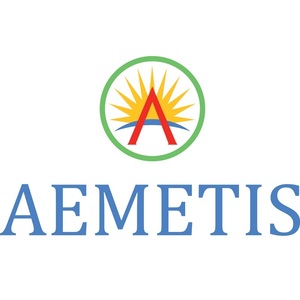Aemetis India plant receives $31 million of biodiesel orders from OMCs for delivery in next 3 months

April 21, 2025
BY Aemetis Inc.
Aemetis Inc., a diversified global renewable natural gas and biofuels company, on April 21 announced the company’s subsidiary in India, Universal Biofuels, received multiple orders for an aggregate of $31 million for the delivery during May, June and July of more than 33,000 kiloliters of biodiesel to the three government-owned oil marketing companies (OMCs).
Additional OMC orders are expected throughout the year in order to continue shipments to fuel blending terminals on an ongoing basis to support the India government goal of increasing from a 1% to 5% biodiesel blend.
”Universal Biofuels and other biodiesel producers look forward to continuous support from the government of India to ensure that climate issues are addressed, while ensuring a healthy biodiesel industry,” stated Sanjeev Duggal, CEO of Universal Biofuels.
Advertisement
Advertisement
“We are pleased with the progress being made in India in support of the 5% biodiesel blending target of more than 1.2 billion gallons per year,” stated Eric McAfee, Chairman and CEO of Aemetis. “The OMCs did not take deliveries during this past winter and instead decided to issue new orders for biodiesel with deliveries from May to July. Our Universal Biofuels subsidiary has successfully completed deliveries under contracts with the OMCs for the past several years, highlighting our track record for producing and timely delivering high quality renewable fuels at our India plant.”
Recently, India achieved a 20% ethanol blend into gasoline and the government stated a new 30% blend target for ethanol, enabling further growth in ethanol production and expanding revenues for farmers while reducing the importation of petroleum gasoline into India.
Advertisement
Advertisement
Universal Biofuels significantly expanded the production capacity of the Kakinada biodiesel plant to 80 million gallons per year during a recent plant upgrade and maintenance cycle, including expansion of its proprietary process that produces biodiesel from waste and byproducts that Universal utilizes to produce biofuels that are lower carbon intensity at a significantly reduced cost.
Aemetis’ Universal Biofuels subsidiary is one of the largest biodiesel producers in India, having been in operation for more than 17 years. Universal Biofuels increased annual biodiesel capacity from 50 million gallons to 80 million gallons last year, with further biodiesel expansion to other locations and diversification into biogas production planned for 2025. To support further growth, Universal Biofuels is preparing for an IPO in India which is expected to be completed in late 2025, subject to continued favorable stock market conditions.
Universal Biofuels completed $112 million of biodiesel and glycerine shipments in the twelve months ended September 2024, including deliveries to the three government-owned oil marketing companies under a cost-plus contract. Shipments of biodiesel to OMC’s are expected to begin in early May under the next round of biodiesel contracts.
Related Stories
CoBank’s latest quarterly research report, released July 10, highlights current uncertainty around the implementation of three biofuel policies, RFS RVOs, small refinery exemptions (SREs) and the 45Z clean fuels production tax credit.
The U.S. Energy Information Administration maintained its forecast for 2025 and 2026 biodiesel, renewable diesel and sustainable aviation fuel (SAF) production in its latest Short-Term Energy Outlook, released July 8.
XCF Global Inc. on July 10 shared its strategic plan to invest close to $1 billion in developing a network of SAF production facilities, expanding its U.S. footprint, and advancing its international growth strategy.
U.S. fuel ethanol capacity fell slightly in April, while biodiesel and renewable diesel capacity held steady, according to data released by the U.S. EIA on June 30. Feedstock consumption was down when compared to the previous month.
XCF Global Inc. on July 8 provided a production update on its flagship New Rise Reno facility, underscoring that the plant has successfully produced SAF, renewable diesel, and renewable naphtha during its initial ramp-up.
Upcoming Events










